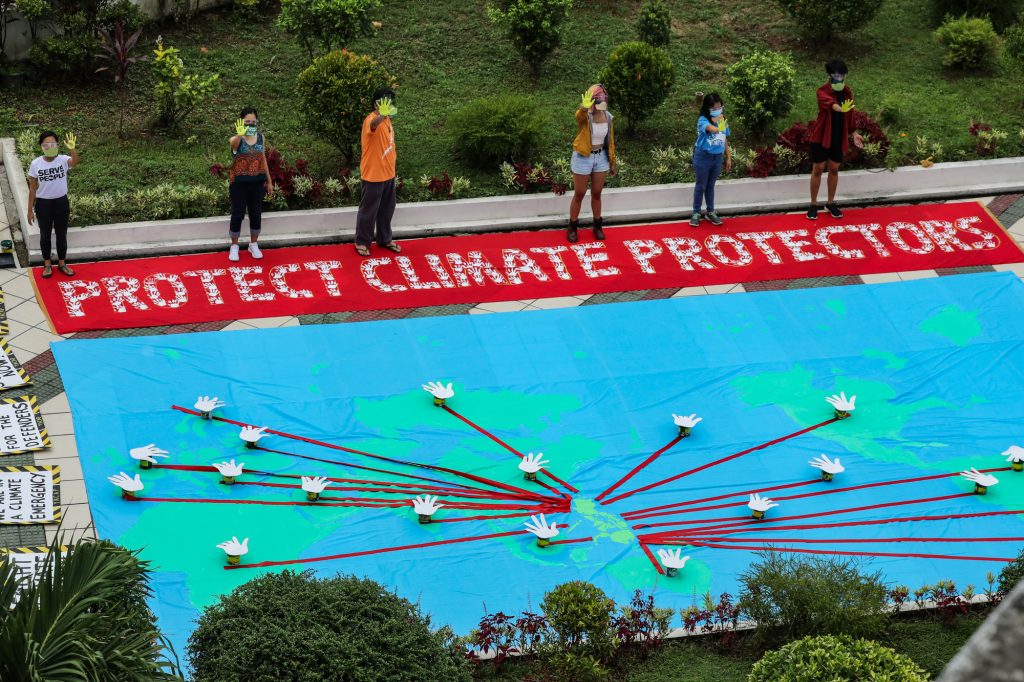Environmental activists in the Philippines joined the “Global Climate Strike” on Friday, September 24, by urging the government to implement an “emergency moratorium” on large-scale reclamation, mining, and dam construction projects nationwide.
“More than 66 million Filipinos living on our coasts will suffer catastrophic impacts from both coastal risks such as reclamation and upland watershed risks such as big mines and dams,” said Leon Dulce, national coordinator of the group Kalikasan People’s Network for the Environment.
Dulce said the administration of President Rodrigo Duterte “must impose an emergency moratorium on these projects now or else be known as the presidency that condemned its entire nation to drown.”
He was referring to the “flagship projects” under the Duterte administration that reportedly demonstrated “various dangerous risks and actual impacts.”
“If President Duterte still pursues these projects, he sets a dangerous precedent of allowing the destruction of our vital ecosystems and displacement of the most vulnerable communities due to climate change,” said Dulce.
He said the risks that come with these projects are not worth the so-called benefits, which only benefit the project proponents,” Dulce added.
The said projects include the Aerocity reclamation in Bulacan province, which was awarded an Environmental Compliance Certificate despite opposition from scientists and other stakeholders, and the Kaliwa Dam, which was flagged with anomalies in its Free, Prior and Informed Consent.
Hold corporations accountable
Young climate activists, meanwhile, demanded the government to hold corporations accountable for what they said are “worsening climate conditions.”
The call came following the release of the United Nations Framework Convention on Climate Change’s latest Synthesis Report on the Nationally Determined Contributions of 113 countries, which shows that the current contributions would warm the planet by 2.7 degrees Celsius—significantly higher than the 1.5-degree Celsius threshold under the Paris Agreement.

A recent study by Lancet showed that 92 percent of youth in the Philippines believe that the “future is frightening” while 68 percent believe that the government is “failing young people” on climate action.
“Being a country among the most vulnerable to the effects of climate change, the Philippine Government needs to step up its efforts in sustaining reductions in greenhouse gas emissions,” said Arnold Onrubia, 29, of The Solon Project.
He said young people around the world are hesitant to have children as a result of the climate crisis and fear that governments are doing too little to prevent a climate catastrophe.
Jochelle Magracia, 18, convenor of the Young Bataenos Environmental Advocacy Network, cited how the day-to-day struggles of the coal-impacted community in the village of Lamao in Limay, Bataan, endangers the young people.
“My family and I have long been suffering from the coal business that has violently caused environmental degradation due to the massive pollution emitted by the [nearby] plant,” said Magracia.
In a statement, Greenpeace Philippines said it is “in solidarity” with young Filipinos in demanding the government “to uphold climate justice by holding big polluters accountable for driving the climate crisis.”
“The government must also ensure a transition to resilient and efficient food, energy, and transport systems, and uphold active citizen participation,” said the pro-environment group.








